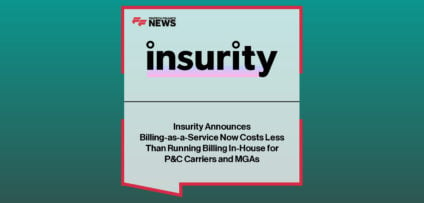Breaking News

2 in 3 UK Adults Say Social Media Giants Have It in Their Power to Do More to Combat Payment Scams
Over two thirds (69%) of the UK adult population believe social media companies have it in their power to do more to prevent payment scams, according to new research* of 2,000 UK adults by Tunic Pay, an anti-fraud fintech company helping household-name UK banks detect and prevent scams before they happen, and Opinium, the market research consultancy.
These findings follow a recent development in banking regulation that now requires all UK banks to reimburse customers who are proven to be victims of payment scams up to £85,000 per case. 63% of respondents to the research believe that if a scam originates on a social media platform, that platform should be subject to the same liability and reimburse the user all or some of the money they have lost.
Banks and social media platforms share the blame and the burden
Asked to think about the actions of social media companies such as TikTok, Facebook, X and Instagram, only one in five (21%) UK adults say these businesses are doing all their can to tackle payment scams that originate on their platforms.
While two thirds (66%) want their banks to work harder to check payments recipients are who they say they are before transactions go through, more than half (51%) of UK adults say that banks and social media platforms are equally at fault when it comes to not stopping scams. Specifically, three quarters (73%) want to see social media platforms and banks work together to help customers check people are who they say they are before agreeing to send them money.
The latest UK Finance data shows that 72% of authorised push payments (APP) scams originate online**. This equates to over £150 million of losses to APP scams in the first half of this year alone***. Industry bodies, including UK Finance, have speculated that the true cost of APP scams could be up to ten times higher than official figures, however, due to the sheer volume of unreported cases.
Scams are costing social media platforms their users – but not in worrying numbers
More than a quarter (26%) of UK adults report that they are using social media less due to fears of being scammed; this rises to more than a third (34%) amongst those who have been targeted by fraudsters before.
Nicky Goulimis, CEO of Tunic Pay, comments: “Social media companies are quickly running out of places to hide from calls by industry and consumers alike who want to see them act harder and faster to curb the proliferation of scams on their platforms. But, in reality, any chance these platforms will sit up and pay real attention remains slim while they don’t have to pay out, like banks do, when their users lose money to scams.”
Nico Barawid, Co-Founder of Tunic Pay, adds: “The APP fraud problem is widely believed to be as much as ten times bigger than reported. That makes it a £4-5bn issue. If social media companies start paying reparations to the tune of billions, they might find more motivation to put better checks in place.”
CASE STUDY: Persephone Tsebelis, a victim of a TikTok scam and engineer at Tunic Pay: “I was scammed on TikTok trying to buy tickets to a major American singer’s intimate and subsequently sold-out London gig. Scamming is a part of life on social media and, while this is the first time I’d been scammed on a social platform, it wasn’t the first time it had nearly happened., I work in the anti-fraud industry, I knew the probability this was a scam was high, and even so I still wasn’t on high enough alert.
“Social media companies and banks should both be required to do more in the way of checks and should better share the responsibility for fraud. People don’t want to have to do all the checks and balances to make sure it’s not payment fraud. There’s an expectation that big businesses have the power to do that for them and so should.
“I don’t use social media any less since being scammed. I use social media and am a good person – surely there are other good people on social media out there too.”
Companies In This Post
- Bluefin and Basis Theory Partner to Enable Unified Tokenization Across Digital and In-Person Payments Read more
- Invest Bank and AUTON8 Build Partnership to Drive Digital Resilience and Banking Agility Read more
- ING’s AI Roadmap: Platform, People, and Agentic AI Read more
- UK-fintech Provided Over £17.5m in Emergency Wage Advances to More Than 55,000 Employees in the Last Year Read more
- TreviPay Announces AI-Powered Growth Center to Help Enterprises Predict Buyer Behavior and Drive B2B Sales Read more














